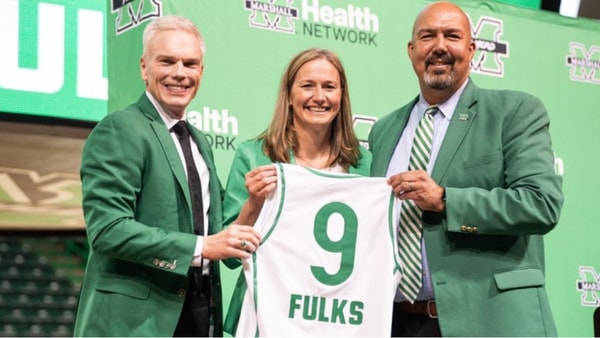The Twilight Zone (2019): Season Finale Review


[Spoilers for The Twilight Zone’s season finale “Blurryman” follow.]
I have largely stayed away from online discourse concerning The Twilight Zone. While I normally read reviews for movies before I watch them, I wanted to go into this show relatively blind as to what other critics and viewers were saying. Today I went back through some articles at various and found that my frustrations with this show – that it is too unsubtly preachy and not nearly sci-fi enough – are frustrations that many other writers have had. But with the show’s meta season finale “Blurryman,” the creative team behind The Twilight Zone retort the collective criticism against it by screaming “We made this season bad on purpose! We are actually smart, trust us!”
“Blurryman” opens with Seth Rogen writing the outline of a movie, kicking himself for being an imposter and a hack. His movie is a nuclear apocalypse piece where only midway through do mushroom clouds end society. Once Rogen’s character thinks to move the nuclear war to the beginning, he feels more at ease and accomplished with his work. He looks outside in joy, thinking about how cooped up he has been and wanting to get some fresh air. But when he opens the window he finds that his story has become reality and the world has become a desolate nuclear wasteland. Peele enters the screen espousing narration about how Rogen will soon learn the social responsibility of a writer, and that he needs to create more than simply “entertainment,” but rather he needs to create “art.” It is incredibly tacky and cringey, directly in line with the rest of this season’s episodes.
But midway through narration, Peele breaks character and says the narration needs to be written. “Blurryman” takes place on the production of The Twilight Zone, with Peele and Rogen playing themselves as they create a new Twilight Zone episode. Peele goes to his makeup room and talks to the episode’s writer and showrunner Sophie Gelson (a fictional character, played by Zazie Beetz) about the opening narration. Peele is turned off by the distinction between art and entertainment; they should not be separated because they are not mutually exclusive. Sophie thinks that the sci-fi story that Rogen’s character in the episode is “genre trash” and cannot be art. Genre fiction at all is just pulp nonsense. Art cannot be silly nonsense. It needs to say something, she believes, and the “slippery slope from superhero movies and sci-fi crap to idiocracy” is what episode being produced in “Blurryman” is all about. Peele replies “Our show is sci-fi, right?”

Jordan Peele in “Blurryman.”
Sophie retreats to her office to rewrite the narration. When she submits it and watches the shooting of it on set, the cue cards have been replace with narration about “writer Sophie Gelson’s” refusal to “confront her fears.” She is convinced it is a prank and tries to track down the person who messed with the narration. In this process she finds out that in the background of every episode of season one there has been a blurry figure ominously standing (the blurry man is truly in every episode, and TV Guide found all of his appearances and put them in this list). On the crew’s lunch she wonders around the set and stumbles upon the Blurry Man. The episode turns into a cat-and-mouse chase with Sophie running across the production lot to ward of the Blurry Man, but she is never able to fully do so.
Sophie somehow knows the Blurry Man’s presence is connected to her hatred of genre fiction. “Jordan’s putting you up to this, isn’t he?” she screams at the figure. “Because horror is real? Because the genre stuff isn’t just bullshit.” There is a tension in Sophie’s mind between the fantastic and the intelligent. For her, sci-fi itself is not quite able to reach a profound level. What she believes Serling did was not give profound stories, but rather gave profound narration at the beginning and end of trashy sci-fi episodes because that was the only way to reach the masses. We know in this alternate reality that Sophie is one of the chief creative minds behind the new Twilight Zone, and her idea that the new show needs to shrug away its genre tendencies to deliver message is very much in-play in almost all of The Twilight Zone’s actual episodes. Very few of this new season resides in the supernatural, and “Blurryman” gives us a reason for that: Sophie hates the supernatural. The soapbox messaging of “Point of Origin” and “The Wunderkind” are a result of her reluctance to dive into genre storytelling and insistence that the show needs to bluntly say something insightful.
Top 10
- 1New
Kentucky rolls
UK 99, EIU 53
- 2Hot
UK should be "further along"
Pope needs to see progress
- 3New
Lowe update
Pope updates PG's status
- 4
Nothing to see here!
Pope downplays UofL pregame.
- 5Trending
Surgery for PG1?
The latest on Lowe
Get the Daily On3 Newsletter in your inbox every morning
By clicking "Subscribe to Newsletter", I agree to On3's Privacy Notice, Terms, and use of my personal information described therein.
But after she figures out that the Blurry Man is in fact real and not some prank Peele has orchestrated, she decides to open herself up to him. He clouds her in smoke and she sees a vision of a young Sophie, eyes locked onto an old Twilight Zone episode. “These are make-believe stories,” her dad protests to her mother. “She needs to get out in the real world with real world.” “She could do both? Right, Soph?” her mom replies. Sophie sees in this vision not only her fear to reckon with the unknown, but also that the supernatural and the natural need not be dichotomized. Genre fiction can be art. Serling’s work on the original Twilight Zone proved this to be the case.
The episode ends with the Blurry Man revealing himself to be Ron Serling, CGI recreated like Peter Cushing in Rogue One. He takes Sophie’s hand, claiming “we have a lot of work to do,” and walks her through a black-and-white door that presumably leads to… The Twilight Zone. It is a note that looks forward to the season two, a promise that the future episodes will be more in-line with the original series. “Blurryman” retroactively turns the new Twilight Zone into an essay that argues that sci-fi metaphors of the original series were necessary for its success, and by removing the sci-fi “entertainment” from the new episodes in favor of “artistic” messaging a new Twilight Zone can’t work. But of course what the original did, and what “Blurryman” realizes, is that the genre entertainment heightens the importance of the artistic marriage. Entertainment and art are married, not separated. The supernatural aspects of the original Twilight Zone are just as real and weighty as its themes.

Zazie Beatz in “Blurryman.”
Season one is an interesting exercise then, an ambitious effort to see if a bad season of television can still have a satisfying payoff. I appreciate the goal and the sentiment – it is a true celebration of Serling’s original series and displays a knowledge of why that show was so incredible – but I don’t think it quite works. “Blurryman” is a fascinating course-correction, but it doesn’t make watching nine episodes of bad television worth it just to find out in the tenth that the first nine were bad on purpose. In fact it may wind up being a damaging experiment. While “Blurryman” indicates a more adventurous second season will come, I don’t think that I will bother watching it because so much of season one – even though it was meant to – left such a sour taste in my mouth. I can’t imagine I am alone.
Creating an actively unentertaining reboot as a way to celebrate the genius of the original property is in its own way genius and subversive, but it works much better as an intellectual thought than it does as a legitimate show. While “Blurryman” is a terrific individual episode and makes me admire season one so much more, the test of The Twilight Zone’s first season doesn’t quite work for me. At the end of the day, no matter the intention and cleverness, if most of the episodes of a TV show is bad, then the show is bad. The Twilight Zone reboot, though it tried, could not overcome that truth.
Episodes of “The Twilight Zone” are available exclusively on CBS All Access. For more of Adrian’s rants concerning bad reboots (looking at you “The Lion King,” probably), follow him on Twitter @APBryant32.








Discuss This Article
Comments have moved.
Join the conversation and talk about this article and all things Kentucky Sports in the new KSR Message Board.
KSBoard